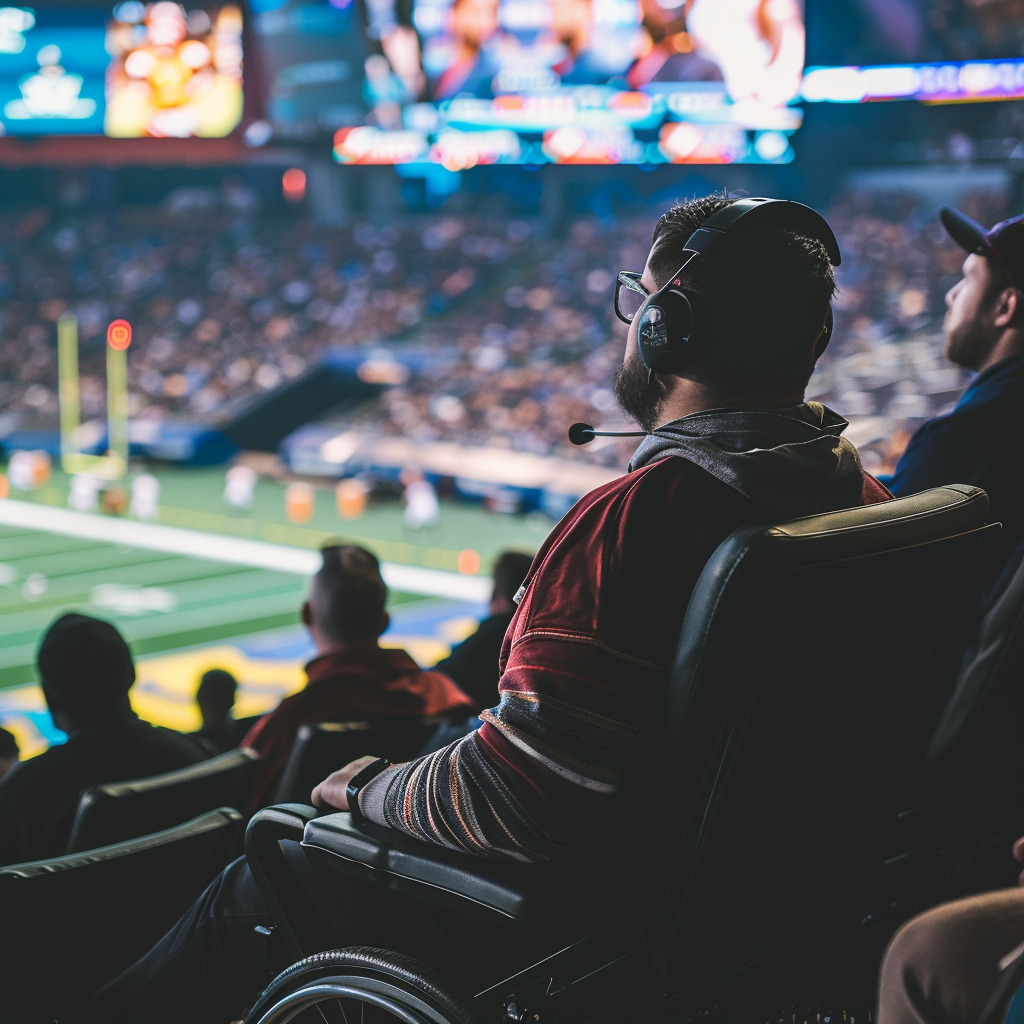Sports betting is becoming increasingly popular around the world, attracting people from different walks of life. Inclusiveness and accessibility of sports betting to diverse populations plays an important role in promoting equality of opportunity and creating a fairer society.
Technology and its role in betting accessibility
Mobile technologies significantly increased the availability of sports betting. Smartphones and tablets allow users to place bets from anywhere in the world, without leaving home. This is especially important for people living in remote areas where there are no land-based bookmakers. Online platforms also play a key role by providing user-friendly interfaces and a wide selection of betting events. Thanks to innovations such as live streaming of matches and the ability to place bets in real time, players can become fully immersed in the experience.
Innovation in the betting industry include the development of special applications for people with disabilities, making sports betting accessible to a wide audience. Developments in artificial intelligence and machine learning are also important, helping to create more personalized offers for players.
Financial inclusion and sports betting
Financial inclusion is an important aspect of inclusion in sports betting. In order to make bets more accessible, the following measures are being taken:
- Variety of minimum bets: Introducing bets with low thresholds allows you to attract a larger number of participants. Players can bet small amounts, which reduces financial risk and allows more people to participate in betting.
- Bonuses and promotions for beginners: Loyalty programs and welcome bonuses make betting more attractive to new players. This allows them to start with minimal investment and gradually build up their experience.
- Development of microbetting: Micro bets, or small amount bets, are becoming increasingly popular. They allow novice players to place bets without making a significant financial investment, making the process less risky and more accessible.
Social and cultural aspects of inclusion
Taking into account the interests of various age and social groups is an important aspect of inclusion. Sports betting should be interesting and accessible to everyone, regardless of age, gender or social status. This includes developing different types of bets to suit different audiences and creating educational programs that help new players understand the world of betting.
Influence of culture and traditions also plays a role in betting availability. Different countries and regions have their own characteristics and preferences that must be taken into account. For example, in some cultures certain sports may be more popular and this should be reflected in the bookmaker’s offerings.
Educational programs and information campaigns help raise awareness of sports betting and make it more accessible. Such programs may include seminars, webinars, and informational materials that explain the basics of betting and help you avoid common mistakes.
Accessibility for people with disabilities
Convenience of online platforms for people with disabilities is an important aspect of inclusion. Modern technologies make it possible to create adaptive interfaces that take into account the needs of users with various physical limitations. This may include voice commands, text descriptions, and other features that make the platform easier to use.
Special functions and adaptive interfaces help make sports betting accessible to everyone. This may include contrast adjustments, larger fonts, and other features that improve accessibility. Bookmakers may also offer specialist support and advice for people with disabilities to help them become comfortable and confident in betting.
Support and services for people with disabilities play a key role in ensuring inclusion. This may include support hotlines, special training materials and individual advice to help people with disabilities use bookmakers on an equal basis with others.
Regulatory and legal aspects
Legislative initiatives aimed at improving accessibility, are an important part of creating an inclusive sports betting environment. Various countries have adopted laws and regulations that oblige bookmakers to take into account the needs of all segments of the population and provide equal opportunities.
The Role of Regulators in Ensuring Inclusion also great. They monitor compliance with laws and regulations, conduct inspections and audits to ensure that bookmakers comply with inclusiveness requirements and standards.
International experience and best practices can serve as an example for other countries and organizations. Sharing experiences and collaborating internationally helps develop and implement effective measures to ensure accessibility and inclusivity in sports betting.
Inclusion and accessibility of sports betting for various segments of the population is an important task that requires an integrated approach. Modern technologies, financial initiatives, social programs and legislative measures help make sports betting accessible to everyone. It is important to continue to work to improve these aspects to ensure equal opportunities for everyone to participate in this exciting activity.
Technologies such as mobile apps and online platforms are making sports betting more accessible through ease of use and the ability to place bets from anywhere in the world. Innovations also include special features for people with disabilities.
To ensure financial inclusion, various minimum bets are introduced, bonuses and promotions are offered for beginners, and micro-betting is also being developed, which allows novice players to bet small amounts.

